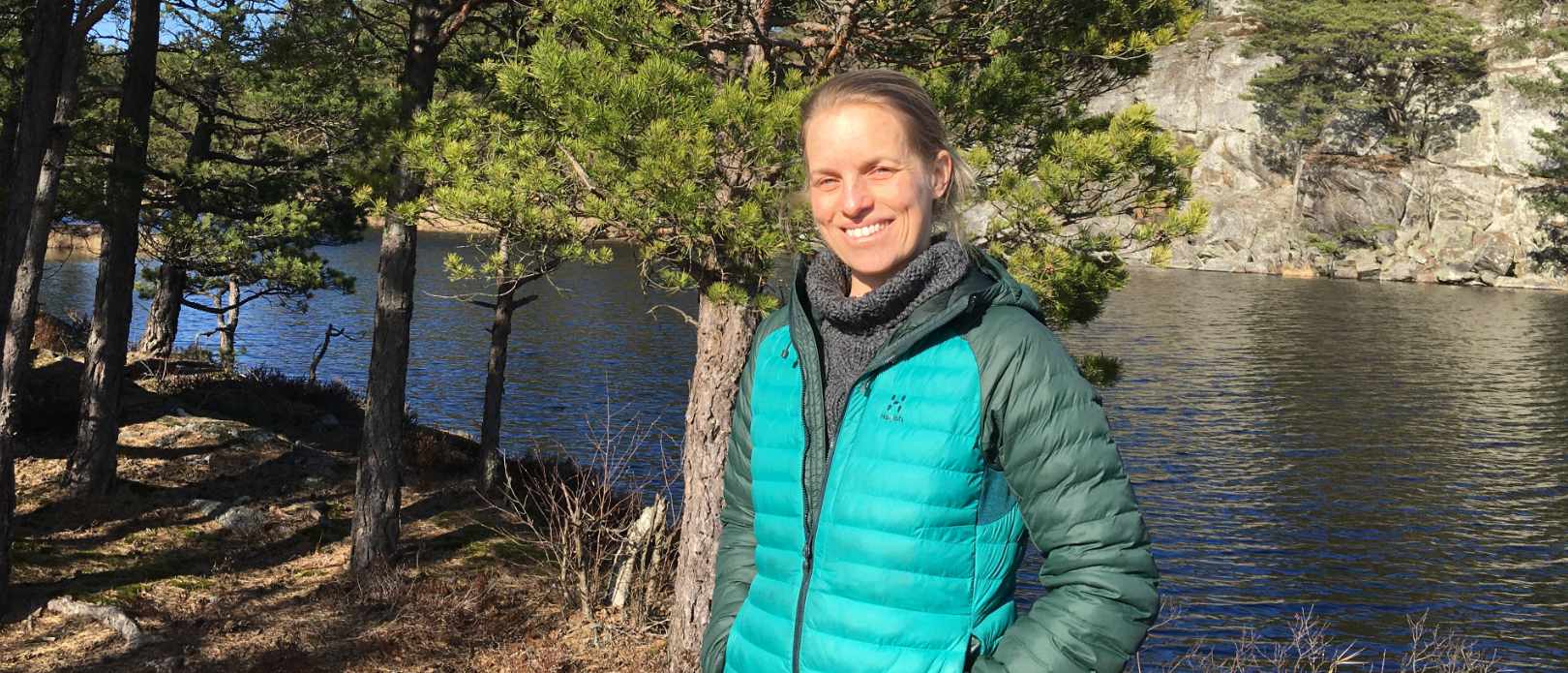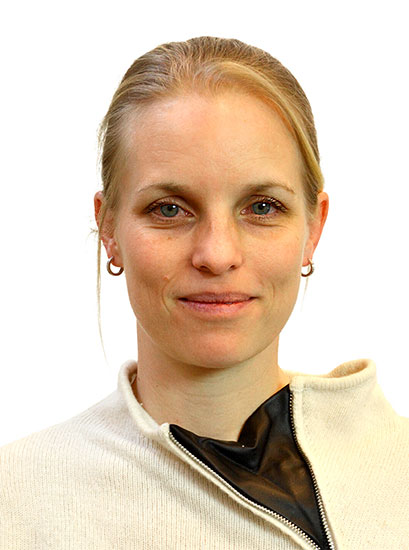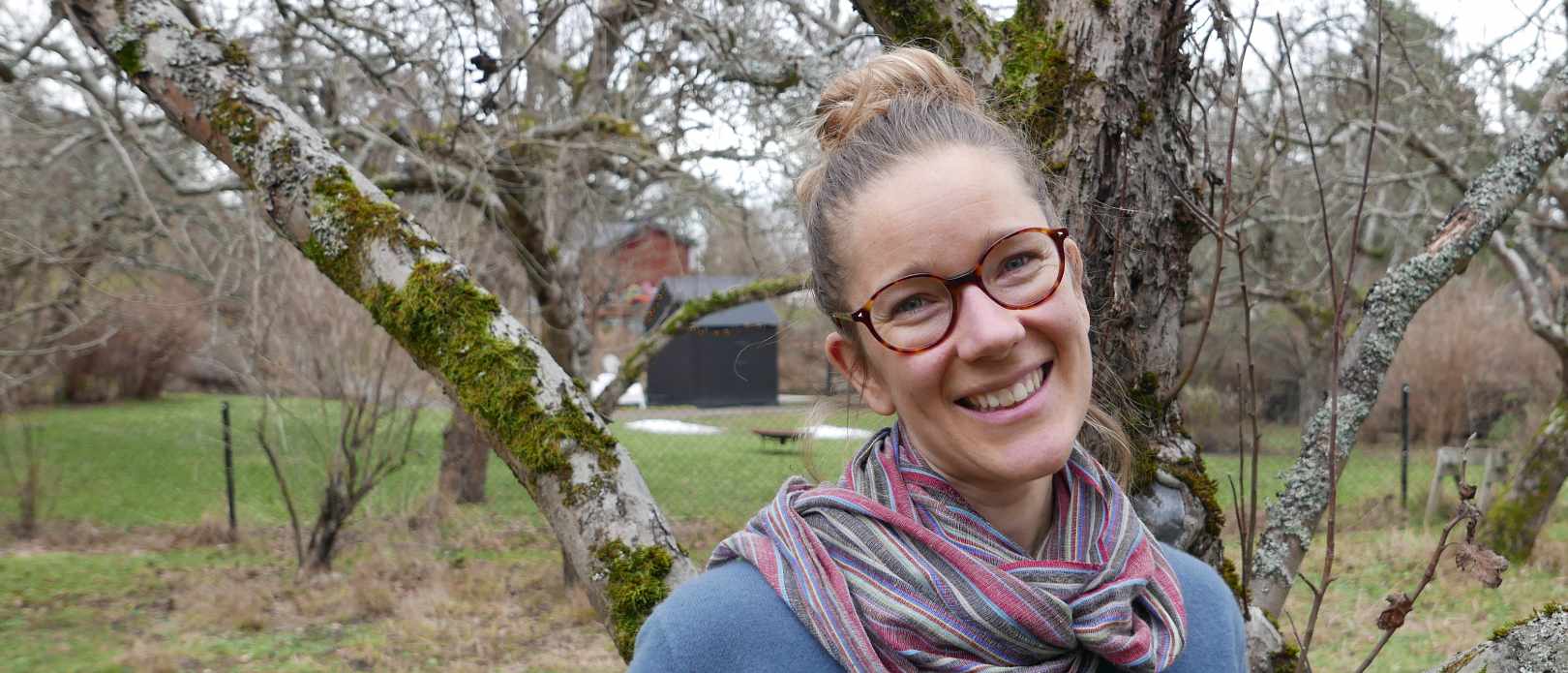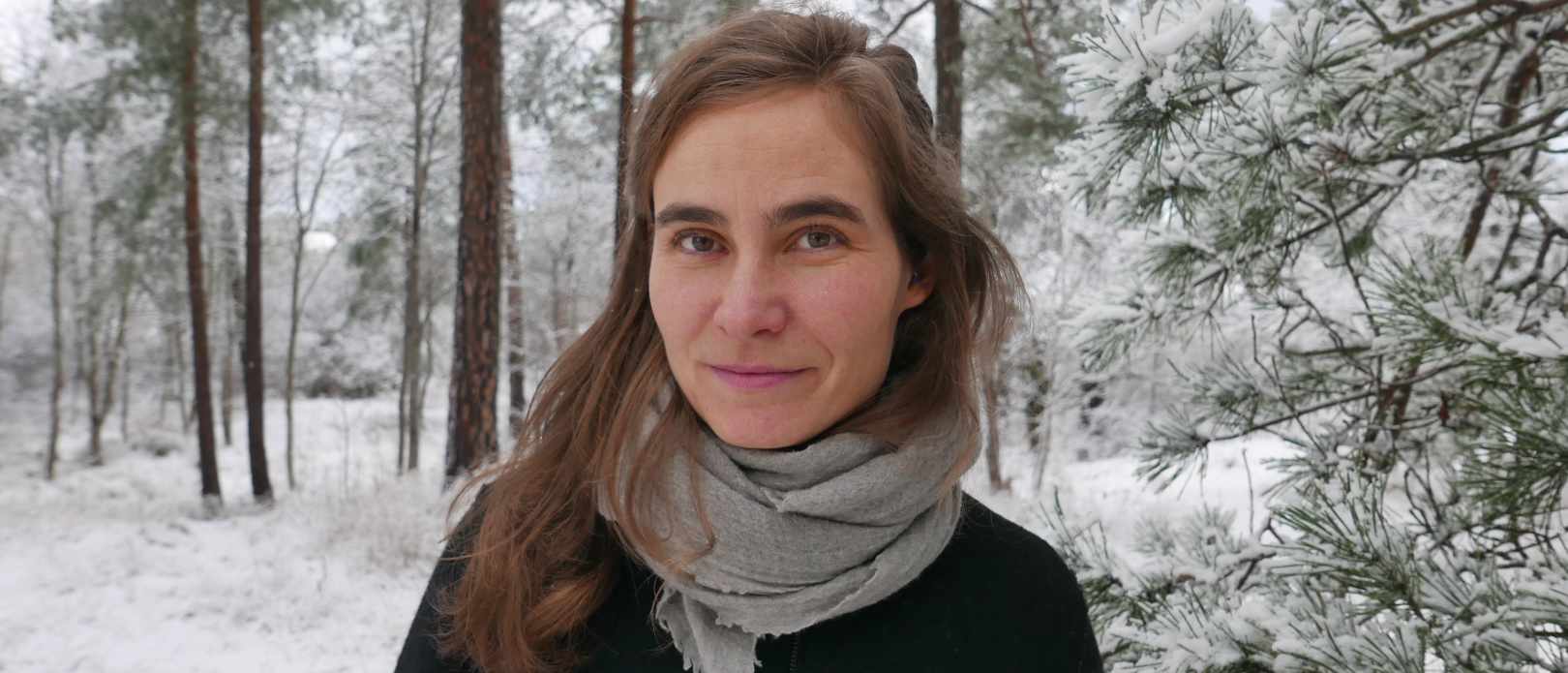RESEARCH PROFILES
Uncovering the “who” and the “what” in sustainability

Andrea Downing is one of the leaders of the centre's new "Stewardship and transformative futures" research theme.
Centre researcher Andrea Downing on what it takes to achieve fair and just futures
- In 2020, the centre introduced new research themes to reflect a shift in the centre’s research focus
- One of the new theme leaders is Andrea Downing who will co-lead the new "Stewardship and transformative futures" theme
- Downing's research focuses on how sustainable development in diverse local contexts combines to shape global resilience and sustainability
Understanding the diverse ways in which individuals and societies are able and empowered to act in concert with nature is essential for shaping development trajectories and transformative change towards social-ecological resilience and human well-being.
So how can we reach these just and sustainable futures in all their complexity and diversity?
We sit down with stewardship and transformative futures theme leader Andrea Downing, who tells us about the race to catch up with the Anthropocene, why she wants to put the role of big business into context, and her plans for consolidating reflexive and ethical transformations research at the centre that gets to the bottom of who can make change, how change can be achieved and for whom change is taking place.
Andrea, your work focuses on the “who” and the “what” in sustainability. What’s the story here?
I’m trying to understand how the many different ideas and approaches towards sustainable development combine to shape global level sustainable development.
What triggers me is how fuzzy many approaches are. “We must not overshoot these boundaries”, and “we must not use too many of these resources”. But who are“we” ? And what should we be doing?
I want to put this into a more tangible context where we can say what people are able to do, who these people are, and be critical of whom they are doing it for.
Why is this important?
If we don't think about who governs social and ecological systems, how and for whom I don’t think there is much of a chance that we will achieve fair and just sustainability.
The consequences of unsustainability have really caught up with us and we can't make significant lasting progress on areas of equality, poverty, hunger reduction without transforming our roles and behaviours in the social-ecological systems we are part of.
You can almost say that it’s easy to trigger a transformation, but for that transformation to have the desired impact we need to be reflective and critical about why things don’t work today, so that we can effectively change the unsustainable and unjust processes we participate in.
We also need to think ahead, so that the ‘transformed system’ is defined by its sustainability – not only defined as ‘not being like today’.
Talking about why things don’t work today, can you give an example?
Take reforestation. That’s good, right? But reforestation programmes that lead a country to import more agricultural commodities from other countries, spurring deforestation in these areas don’t actually do any good, and from a systems perspective, often do worse.
In our project on reforestation in China, we look for cascading effects and root causes of unsustainability at social-ecological system levels: what were these forests elsewhere used for, and how are social power structures being changed?
Until root causes of deforestation are addressed – in consumption and production patterns for instance – such reforestation programmes - in China and elsewhere - will not represent transformative action towards sustainability.
What are the challenges to your work?
In the Anthropocene everything is connected and changes so quickly, and we are catching up with how we regulate and manage these connections. The challenge is to be one step ahead and use this connected world for the benefit of all, rather than running behind and catching up with the problems it can create.
That said, there are questions ahead of me forever so I’ll never get bored.
My research seldom leads me where I expect it to and I have to interact with people from all sorts of disciplines and backgrounds and places and that’s really enriching and fun. It can be challenging, and I enjoy a good challenge.
Tell us more about your project looking at increasing the sustainability of value chains in India
This project centres on crop residue burning in India – which is a killer process that costs thousands of lives each year though poor air quality, and that also has many direct and indirect effects on the biosphere: it contributes to climate change, to melting Himalayan glaciers, to soil degradation and groundwater loss.
A lot of efforts have been made to give farmers alternatives to crop residue burning, but these don’t address the constraints that make farmers choose burning. Ultimately the farmers are part of a much bigger system. There are policy and time constraints, as well as demand from those that buy and sell the rice and wheat.
We take a systemic perspective to understand how risk, responsibilities and opportunities are spread out in value chains and policy systems. With this we get a better perspective on who has the opportunity to do things differently, and through our systems lens, we can assess what changes might influence crop residue burning.
You’re also looking at gender in forestry. Why is the gender perspective important?
A gender perspective sheds a light on the ‘for whom’ and ‘by whom’ of sustainable development. In the SEQUAL project led by our colleague Grace Wong we’ve been looking at the role of women in the forestry sector in Sweden, because despite efforts and policies, it is still a man-dominated sector that lags behind Sweden’s progress on equality. To understand this ‘slow gender mainstreaming’ we are trying to find root causes for the absence of women in the forestry sector, and if they are reflected in policies.
Policies tend to frame issues in certain ways. For instance a policy that focuses on educating women on forest work assumes that women are absent from the forestry sector because they lack the skills. However, womens’ absence from the sector is largely due to the sector, its tools, standards, expectations and the work-place atmosphere that have been designed by and for men. Technical solutions to include women are not enough - the entire forestry sector needs structural changes.
Both gender mainstreaming and transforming the forest sector is a job for and by men and women alike – or let’s just say for people who represent society at large, not just sub-groups. And again – this isn’t unique to Sweden’s forestry sector...
How do you see the role for big business in sustainability transformations?
We see places of power — big transnational companies for instance — as great levers for change. We think that because they hold a lot of power they can relatively easily enact huge change. But a more sustainable future needs to be a more equal future, which means these companies might no longer hold so much power in a sustainable and just future. There is a tension in that: how do we leverage individual mastodons to enable change to a more diverse system?
When collaborating with today’s powerful organisations holders you realise that future change makers exist elsewhere in society, require a voice and want to be heard. Engaging different people differently and knowing who to engage with is difficult, and requires multiple layers of humility and reflexivity.
You’ve been appointed one of the new leaders of the stewardship and transformative futures research theme. What are you most excited about?
The new theme brings together those who have traditionally worked with transformations — especially scenarios and visions of the future — with stewardship researchers who think about why and how and who can get together to make change. I think the middle bit: where transformations and stewardship meet, is where the fun stuff is happening!
The theme covers a diversity of topics – finance, gender, and knowledge co-production, covering urban systems, drylands and forests, relating to conservation, green new deals, democracy and more – in which we can explore the intersections of Transformations and Stewardship, or TranStew – like we call it.
It’s also very fun to work with and learn from Vanessa Masterson, my awesome and brilliant theme co-leader, and of course everyone engaging these topics.
Finally, how does the theme’s work contribute to transformative change on the ground?
I think we are moving from sustainability science that ‘tracks our own decline’ – flagging the million ways in which we are living unsustainably, and why this is undesirable. Our main focus is in assessing how systems can operate more sustainably.
Our science is very directed towards being useful for society at large. We have many partnerships with people working on making change the ground, be it policymakers, businesses, or civil society.
Very little of our work happens in a purely academic context, and what does also involves interviews and interaction with real cases so that we understand why we are doing our research. This is of course essential for the kind of work we do.









